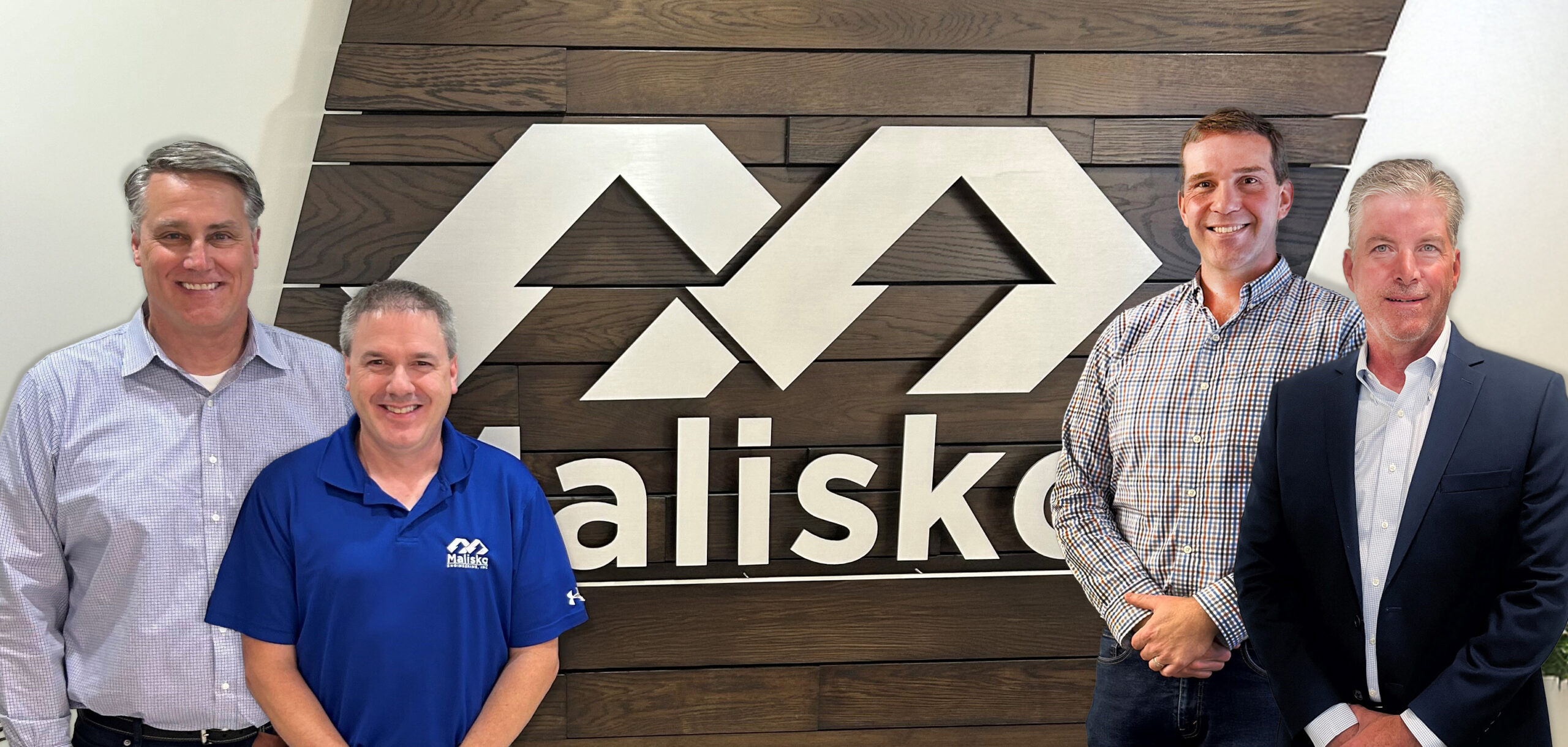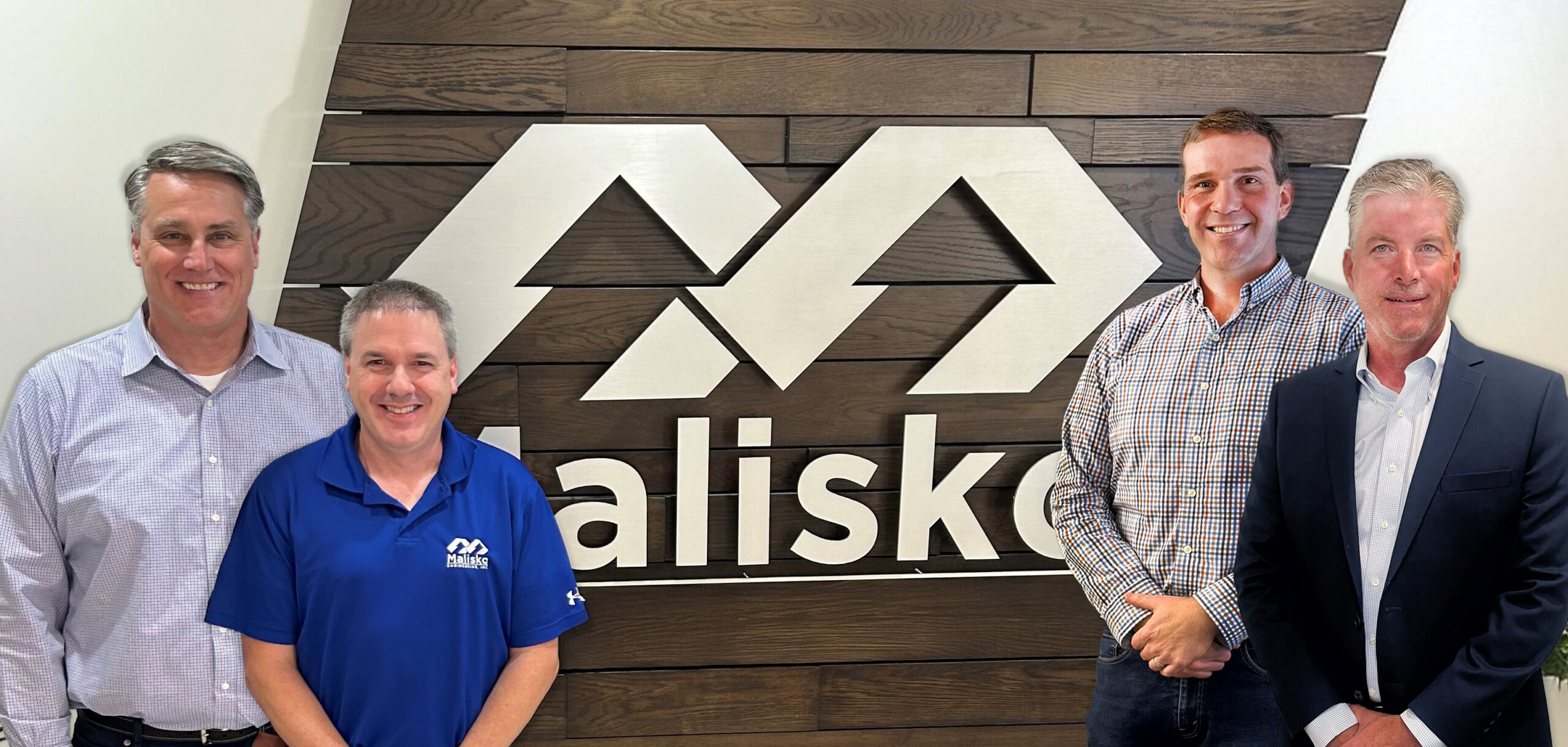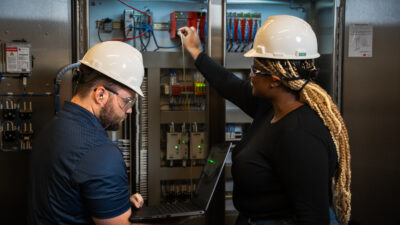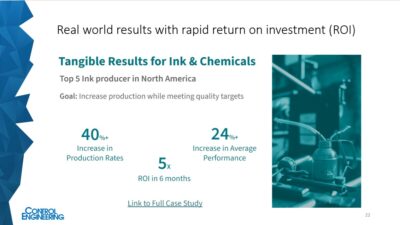Malisko Engineering is the winner in the under $20 million in system integration revenue category.

2025 System Integrator of the Year, under $20 million in system integration revenue category insights
- Malisko Engineering Inc. is the 2025 System Integrator of the Year award winner in the under $20 million in system integration revenue category, from Control Engineering and Plant Engineering publications, WTWH Media.
- Malisko Engineering answered questions about automation and control system integration achievements, projects, engineering development and metrics, among others.
Malisko Engineering is the 2025 System Integrator of the Year award winner in the under $20 million in system integration revenue category. Dan Malyszko, vice president, Malisko Engineering Inc., discussed automation and control system integration achievements, projects, engineering development and metrics, among other topics.
In your 2025 System Integrator of the Year application, what were you particularly proud of?
Thank you! We are incredibly proud of the journey Malisko has taken with the Entrepreneurial Operating System (EOS) over the past several years. Implementing EOS has been a game-changer for our team, aligning everyone within the company and ensuring that we are all rowing in the same direction. This structured approach has not only helped streamline our internal processes, but it’s also allowed us to focus more intently on our core mission: delivering value to our customers.
With EOS, we’ve become more cohesive, clear about our goals, and more disciplined in our execution. This has made us more responsive and adaptive to our customers’ needs, ultimately increasing the value we provide. As a result, we’re better positioned to tackle complex projects and maintain high standards across the board. EOS has been foundational in helping us operate at a higher level, and that alignment played a big part in this recognition.
We are honored to be awarded the System Integrator of the Year for the third time in the last 15 years. This recognition reflects our constant commitment to one of our core values: Raising the Bar, a principle that drives us to continually push for excellence. We are immensely proud of the foundation laid 30 years ago by our founders, Steve Malyszko and Nancy Lange, along with all the dedicated individuals who have worked tirelessly along the way to shape Malisko into the company it is today. This award is a testament to our passion for ongoing improvement and our dedication to making meaningful connections across the enterprise, ensuring that we deliver lasting value to our clients and partners.

Describe one or more system integration projects
One of the projects we’re most proud of is our work with Meati Foods, where we focused on the control system for their commercial production facility producing a novel mycelium-based protein. This project presented unique challenges, especially in managing the precision fermentation process at scale.
We implemented a sequencer-based control system that allowed for batch-type control without the need for a dedicated batch server. This approach provided the flexibility to run multiple recipes simultaneously, enabling dynamic adjustments and optimizing throughput without requiring extensive reprogramming.
A critical aspect of the project was elevating data visualization to provide real-time insights. While we utilized standard data monitoring and visualization tools, we spent significant time working closely with end users to model their data effectively. By focusing on an asset-based framework, we streamlined data reporting and empowered users to become “citizen data scientists,” giving them the tools to actively analyze and interpret their own data. What was especially rewarding was seeing how the data directly guided process decisions, impacting the startup’s financial outcomes—both positive and negative. This capability proved invaluable during commissioning, facilitating faster troubleshooting and ensuring smooth operations while having a real, measurable effect on their bottom line.
Projects like this demonstrate the value of our focus on precision control and data visibility, helping companies like Meati scale their operations efficiently. Our work spans industries such as food and beverage, life sciences and consumer packaged goods, where delivering flexible, innovative automation solutions is critical to success.
What system integration project methodologies do you use and why?
At Malisko, one of the key methodologies we focus on is fostering regular, proactive interaction with our customers throughout the entire project lifecycle. As customer engineering teams become leaner, they increasingly look to us not only for technical solutions but also for guidance in project management and execution. By adopting a more disciplined project management approach, we ensure that communication is consistent and transparent, allowing us to stay aligned with customer goals and adjust quickly to any changes in scope or requirements.
This regular engagement helps us anticipate challenges early and manage them effectively, reducing the risks of delays or cost overruns. We have evolved our approach to include more frequent touchpoints and structured updates, which empower customers to stay informed and involved in key decisions without being bogged down by the day-to-day details. As a result, we’re able to provide a higher level of support and accountability, which has become critical as customers expect us to take a more holistic role in managing their projects.
How have customer expectations for system integration projects changed; how do you anticipate changes?
Customer expectations have shifted considerably, particularly in their reliance on us as the subject matter experts in navigating complex projects. Many of our customers don’t have the bandwidth to become deeply familiar with evolving industry standards and best practices, especially in the world of control systems. As a result, they count on us to fill those gaps and ensure the solutions we implement are not just technically sound, but aligned with the latest innovations and best practices.
At Malisko, we embrace this responsibility by acting as advocates for our customers. It’s our role to challenge conventional methods when we see an opportunity for improvement. We go beyond simply executing what’s asked of us; we continuously assess whether there’s a more efficient or forward-thinking approach that could benefit the project. This keeps us at the forefront of technology and industry standards, allowing us to guide customers toward better, more sustainable outcomes.
By doing so, we can anticipate changes and address challenges effectively, providing solutions that not only meet current needs but also position our customers to succeed in the future. This evolving role reflects the growing need for integrators like us to go beyond technical expertise and provide strategic guidance throughout the project lifecycle.
How important is developing long-term customer relationships and why?
At Malisko, long-term relationships aren’t just important — they’re the only kind of relationships we’re interested in. We see ourselves as an extension of our customers’ project teams, deeply embedded in their success. Our approach is guided by our core value: “Listen, Define, then Design.” We take the time to fully understand our customers’ goals and challenges by listening carefully, defining the right approach, and then designing solutions that not only meet immediate needs but also position them for long-term success.
Another of our core values, “Servicing Manufacturing is Serving Society,” drives us to go beyond the technical aspects of our work. We view the industries we serve as vital contributors to society, and by helping our customers thrive, we contribute to the broader good. This perspective reinforces our commitment to building long-term partnerships where we provide continuous value, ensuring we’re not just completing projects but helping to sustain and advance the manufacturing sector as a whole.
Through these relationships, we become partners in growth, providing ongoing support, anticipating future needs, and ensuring that our customers are equipped to adapt to industry changes and technological advancements. This collaborative approach ensures mutual success and shared achievement over time.
Are supply chain issues affected projects in any way?
Supply chain issues have certainly impacted current and future projects in significant ways. Many of our customers have had to scramble to source parts to meet deadlines, and this has unfortunately affected their ability to stay consistent with their preferred equipment vendors. As integrators, we always aim to foster a cohesive system approach, but when customers are forced to mix and match vendors, models, and components due to availability, it can create challenges in ensuring a fully integrated and optimized system.
This lack of standardization complicates everything from support and maintenance to future scalability, making it more difficult to ensure the system operates smoothly as a whole. We’ve had to adapt by being flexible in our design approach and creative in how we integrate these varying elements while still maintaining system performance and reliability.
Additionally, we’ve seen a growing interest in “Made in America” solutions as customers look for more reliable and local supply chains. While this tendency hasn’t completely replaced traditional sourcing methods, it’s clear that companies are more interested in domestic options where possible, to mitigate the risks posed by international supply chain disruptions. It’s another factor we’re keeping in mind as we help our customers plan and execute future projects.
How are you helping younger engineers with automation and control system integration?
At Malisko, we strongly believe that on-the-job training (OJT) is the most effective way to immerse younger engineers in our world. There’s no substitute for being on-site, working directly with customers, and seeing firsthand the processes we control. This experience is invaluable in helping new engineers gain a deeper understanding of the systems and technologies we work with. We even extend this approach to our summer interns, ensuring they have the opportunity to participate in projects with on-site time to build their practical experience.
However, OJT isn’t a replacement for structured learning. We have a comprehensive curriculum in place for our young engineers, designed to bring them up to speed on the vast and complex systems we integrate. This combination of hands-on experience and formal training ensures they not only gain valuable technical skills but also the confidence to manage projects independently in the future. By blending real-world exposure with ongoing education, we help them develop a well-rounded expertise that’s essential in our field.
Please share a long-term goal for the company
One of our long-term goals at Malisko is to achieve sustainable growth while ensuring that our company culture adapts to the evolving preferences of each new generation. As the workforce changes, we’re focused on fostering a culture that resonates with our team, maintaining our core values while staying flexible and responsive to what our people need to thrive.
In parallel, we’re committed to growing with the right kind of customers, building long-term relationships with companies that align with our values and vision. This approach ensures we not only expand but do so in a way that benefits both our business and the customers we serve. It’s about balancing growth with a focus on meaningful, enduring partnerships.
Provide a few metrics and explain their importance
Key metrics include:
- Project success rate: 96% of projects completed on time and within budget. This highlights our ability to deliver results efficiently, a critical factor in maintaining loyal relationships with our customers.
- Customer retention rate: 98% customer retention over the past year. This reflects the strength of our long-term relationships and our commitment to customer satisfaction.
- Revenue growth: 13% year-over-year increase. This showcases our sustainable growth, competitiveness and ability to expand our business while maintaining quality.
Dan Malyszko is vice president, Malisko Engineering Inc. Edited by Mark T. Hoske, editor-in-chief, Control Engineering, www.controleng.com, WTWH Media, [email protected] Amanda Pelliccione, marketing research manager, WTWH Media, administers the System Integrator of the Year program. Learn more about past winners, as well as this year’s winners in other categories, including $20 million to $50 million in system integration revenue category and the over $50 million in system integration revenue category.
ONLINE
For more, see the Malisko Engineering Inc. entry in the Global System Integrator Database.



